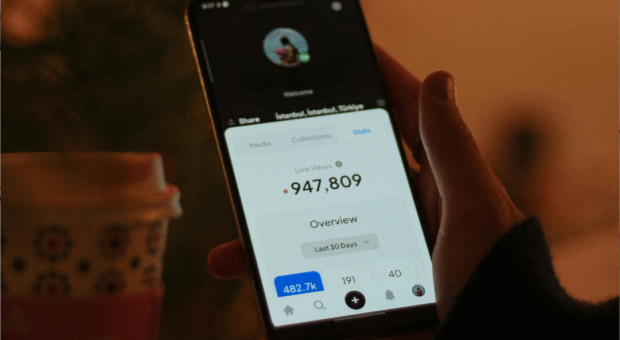
Categories:
Influencer marketing has had a lot of buzz lately, and many well-known brands are investing in it heavily. So, if you work for a nonprofit or are a small business with a limited budget, you might think influencer marketing doesn’t pertain to you. But the truth is, influencer marketing might be a better fit than you think.
Granted, in the mega business landscape, influencer marketing is a fast growing “pay to play” PR strategy that is being successfully employed by all sorts of large brands from Nike to Chobani. In this scenario, brands engage with well-known influencers / brand ambassadors – such as celebrities, athletes, chefs, etc. – who become paid advocates and content generators for their particular product or brand. Influencers with star quality and media savvy lend special credibility and cache to brands, helping them reach new audiences with compelling, believable, and relatable messages.
But influencer marketing doesn’t exist only at this mega-scale. The most basic influencer marketing starts in the backyard, on social media, or at a cocktail party. Simple recommendations from neighbor-to-neighbor or Facebook friend-to-follower are just as powerful (often even more powerful) than celebrity shout-outs. The low cost and relatively large influence of what we call “micro-influencers” allows even tiny nonprofits with minuscule marketing budgets to employ influencer marketing to help advocate for their cause.
So, who are your influencers?
In the old days, “influencers” might have been called stakeholders, grassroots advocates, or simply the true believers of your mission. In the digital age, the definition has broadened to include individuals with social media cache (an audience of followers) or those who can spread positive messages or stories about your mission and your work.
The most effective influencers are those people with the power to spread your messages to audiences beyond your reach and engage with them in an authentic way. Obvious ones might include, journalists, bloggers, and authors, but they may also include photographers, artists, town and municipal leaders, real estate agents, coaches, selectmen, fire chiefs, legislators, legislative candidates, community leaders, and local business owners.
At a recent workshop held by the Maine Land Trust Network, two presenters – a seasoned public relations advisor from Ethos and a state senator – offered up some helpful advice for land trust Executive Directors and their board members about how to identify and market to the influencers in their sphere.
Entitled, “How to Talk to Important People about the Good Your Land Trust Does,” the 2-hour interactive workshop was designed to help land trusts develop a sound (and long-term) strategy for reaching broader audiences by challenging participants to brainstorm their own list of potential influencers and interesting ways to engage them.
How to Engage with Influencers
Building a successful influencer marketing plan begins with identifying potential influencers in your market. Consider people with similar values, or who speak to audiences that are a good fit for your brand or organization.
Once you’ve developed a solid list of potential influencers, it’s time to think about how to engage them. While some organizations are successful in engaging influencers simply through shared values, typically this strategy is limited. Most truly influential prospects will require compensation or something of value (product, experience, exposure) in return for their work. No matter how you compensate influencers, the focus should be on building long-term relationships, which may take several months or even years. The deeper your relationship with the influencer, the higher the returns will be, as over time influencers often begin to internalize the message or use your products outside the scope of your paid relationship. These value-added mentions are often even more influential than the content you pay them for.
Here are 8 ways you can start to engage with influencers when you have a limited budget:
-
Create Valuable Experiences
Invite influencers to experience your organization in a legitimate and intimate way, such as an event or a tour.
-
Increase Their Exposure
Create a calendar for the season/year and identify opportunities where your existing work can be used to incorporate and include your influencers. For example, ask an influencer if they would like to be interviewed for a blog post that you plan to share with your network. In turn, they will most likely share that content with their audiences, too.
-
Ask Them to be Speakers
Identify people who are already advocates or benefit from your nonprofit’s programs. Ask them to speak on your behalf.
-
Seek Their Advice
Influencers like sharing what they think. Ask them if they would be willing to serve as an advisor for your campaign, issue, or program.
-
Encourage All Types of Content Creation
If blogs, stories, or photographs are published by an influencer, always reach out afterwards to thank them. If corrections need to be made, pass them on directly. Don’t shut down the communications.
-
Be Their Partner
Get informed and prepare ahead of time by reviewing their work and key issues/positions. Make them feel special. For example, make it a point to invite town officials, municipal leaders, journalists, business leaders, or other influencers to events you are already hosting. Show them what you do rather than telling them. Call or write to extend them a personal invitation.
-
Keep Consistent Communication
Schedule time each week/month to put on your PR hat and think about upcoming programs, events, or projects that you might not have thought about as opportunities for engagement. And always circle back to influencers when key issues affecting your organization become newsworthy and of special concern.
-
Continue the Conversation
Once influencers engage with you at an event:
- Present your story to them in the simplest terms possible.
- Focus on the benefits your organization provides for the community and its people. Then be willing to let them ask questions.
- Listen to their questions and concerns before immediately responding.
- Allow them to probe into different aspects of what you do – let their own interests lead the conversation. Pay attention to what they like.
Identify when you think there is a potential story or point of interest. - Lean into – and not away from – touchy or controversial subjects. Be ready to open a dialogue about issues you know may be on someone’s mind.
Bottom Line: It doesn’t matter how big your budget is. Nonprofits should spend time thinking about how to engage influencers (both small and large) on their behalf. In the digital age, influencers can provide powerful 3rd party endorsements that can increase your exposure and build a long-term and well-informed network of supporters.
About Ethos
Ethos is a multiplatform branding agency that develops and executes integrated marketing campaigns across multiple channels for companies inside and outside of Maine.
At Ethos, we believe that the most effective way to set a company’s marketing course is by finding its core truth – its ethos. We know that once we discover and communicate that core truth, we can truly make a difference for each client’s unique marketing and business objectives.
With Ethos, you get more than a marketing agency. You get a long-term partner whose goals are your goals.
Learn more about the Ethos approach and the work we’ve done for our clients. Want to have a conversation about your brand’s core truth? Contact us!

